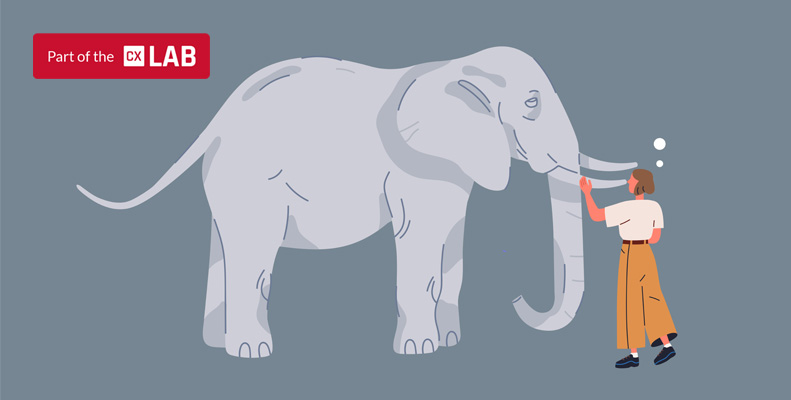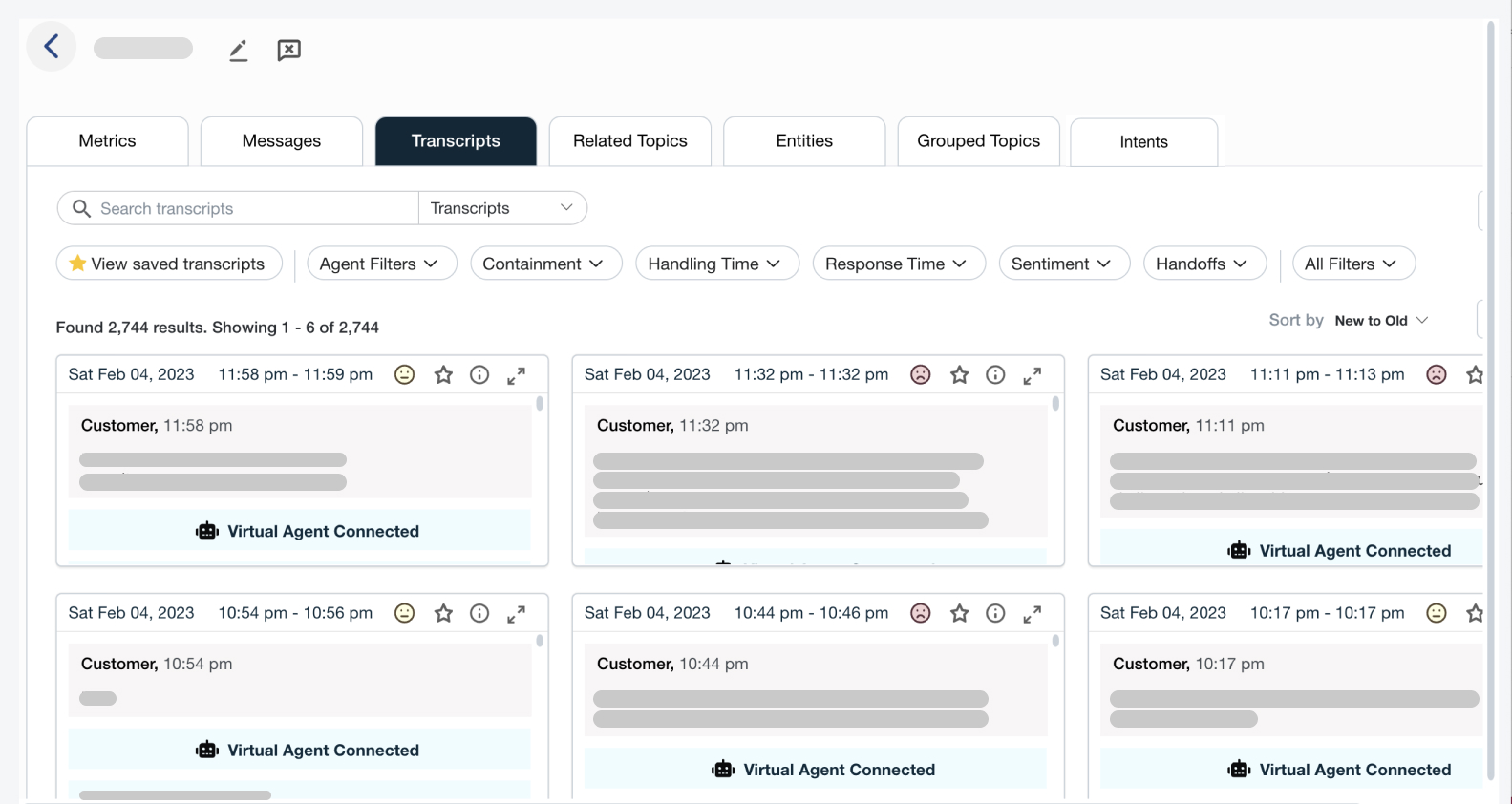What Elephants and Customer Experiences Have in Common
What Elephants and Customer Experiences Have in Common

Elephants have the largest brain of all land mammals and the ratio of their brains to their overall body mass is not far behind that of humans. So, why am I mentioning this seemingly random observation? Well, it’s important because humans are very much like elephants: they have amazing memories. This means they rarely forget wonderful or horrible customer experiences.
As we enter this period of economic uncertainty, there is a growing concern that organizations will hunker down and focus solely on cost-cutting tactics and operational efficiency. Unleash the chatbot! The result of such workarounds regularly translates to a degradation of the customer experience. We saw this in the last big recession spanning 2007-2009. The customer was often abandoned and left feeling disappointed. Disgruntled customers, just like elephants, remembered how poorly they were treated and voiced their dissatisfaction by disregarding previous brand loyalty and swapping to a competitor.
So, in these tough economic times, what are the best strategies to provide (ele)fantastic experiences? Calabrio explores 5 brand and money-saving customer experience (CX) options.
Look Back to Look Ahead
How willing are customers to forgive brands for poor experiences? Calabrio’s own research reveals that most consumers will only tolerate 2 (44%) or 3 (30%) negative interactions before switching brands. It also uncovered that 3 in 5 consumers would switch brands due to negative contact center experiences. That’s why it’s never been more important to focus on strengthening brand guardianship to improve customer satisfaction.
Looking ahead this year, I think we’re going to see a very broad diversity of customer service strategies. Some contact centers will batten down the hatches and strive for operational efficiency. Others who learned from the past will continue to invest in new CX technologies. Ideally, we want to encourage contact centers to go one step further: switch their mindset to become profit centers.
Top 5 Money-Saving CX Strategies
Whichever direction you take, focus on making your customers feel valued. Here are a few ideas that are kind to customers and the corporate pocket:

1. Seek Out the Win-Win Opportunities
There are investments that can be made that have a positive impact on CX and operational productivity. So regardless of how the economy pans out, you’re covered. A good example is speech analytics. From an operational point of view, speech analytics help to identify self-service containment opportunities or agent knowledge gaps.
Analytics also play a huge role in improving CX. They can detect customer frustrations and then alert an agent or supervisor to call them back later in the day. This highlights both the operational and CX benefit of investing in an analytic solution.

2. It’s All About Soft Skills
How you make your customers feel is just as important as whether you solve their problems. That’s why it’s good practice to reassess your training techniques. Today’s agents require a broader skillset because consumers expect fast, efficient service with the human touch.
Blend traditional hard skills such as speedy resolution of customer problems and product knowledge with softer skills that guarantee positive customer conversations and outcomes. Empathy, helpfulness, adaptability, active listening, and patience go a long way with customers.

3. Build a Team of Brand Guardians
Competition is fiercer than ever and contact centers need to engage more closely with customers. This is the best way to influence brand perception, win sales, and build longer-term loyalty.
Encourage agents to perfect a compelling storyboard that makes your offering stand out from the crowd, whatever the channel. Inspire and motivate team members through gamification. Offer rewards to those who share their customer successes and learning with others. This gives everyone the chance to shine and customers will pick up on their positive energy and enthusiasm.

4. Rethink Your Channel Strategy
It’s not just about adding more channels, it’s about designing how your customers want the experience to flow and feel. Think about the end-to-end customer journey. It normally starts online and then likely involves a mix of other digital or voice channels. Change the mindset from self-service OR human-assisted to a more realistic blended one. That way customers can move seamlessly from one channel to another and back again.
Above all, make sure all new channels are fully integrated with the rest of your contact center. Effortlessly link to workforce management (WFM) and quality management (QM) systems and messaging apps like Facebook Messenger, WeChat, or WhatsApp.

5. Learn From the Past
My final piece of advice is to think long-term. Remember, we humans have an unparalleled brain-to-body mass index, even better than elephants. If we are treated badly, we will remember and punish you when more prosperous times return.
Stay true to your brand values. Do everything you can to maintain and even elevate the customer experience over the coming few months. You’ll see how your hard work will be rewarded with customer loyalty and a rapid return to growth for years to come.
Find the Perfect Solution for Greater Customer Experiences
Whatever your budget, there’s a perfect solution for you. Which customer service strategy will win out in your organization? Now is the time to strengthen your customer experiences in preparation for the upcoming year. For more ideas and inspiration, download our State of the Contact Center Report 2022.









